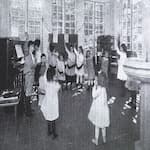Was Montessori Tough to Do Business With?
by Matt Bronsil, author of English as a Foreign Language in the Montessori Classroom
Maria Montessori always fought to protect her educational method, sometimes at her own peril.
In 1911, McClure's Magazine was an important part of American culture. In May of that year, it published its first article about Montessori called "An Educational Wonder-Worker" by Josephine Tozier. The popularity of the magazine articles eventually lead Samuel S. McClure to visit Maria Montessori in Rome and persuade her to come to America to give lectures and present the Montessori Method to the US. One issue: SS McClure was dead broke. By the time he went, he had to sell off his magazine (which he was still editor of), got an advance of funds to visit Rome to talk to Montessori, and was just not doing well financially at the time. None of this, I'm sure, was discussed with Montessori. Montessori came and gave her lectures in 1913. She also helped set up a Montessori Society with Anne George, her first American student that took the training in 1911, Mabel Bell (Alexandar Graham Bell's wife), SS McClure, and others all having different roles. The House of Childhood, which was the company making and selling the Montessori materials at the time, was also involved in this. Both these agreements fell through on many levels.
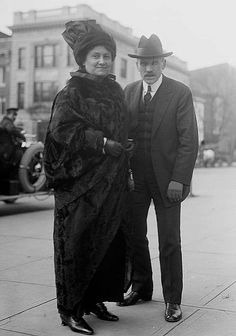
Success and Failure on the Trip
The lecture tour was a success in terms of the energy it brought, but Maria Montessori had a legitimate problem with the way she was paid. She was supposed to get 60% of the net profit from the tour, but she ended up getting 60% of the gross sales minus most, if not almost all, of the expenses (hotels, travel, translation....). In essence, she made about 45% of the net, rather than the promised 60%. The House of Childhood, while Montessori owned 20% of that company, got only paid $500 for the first year. At this point, McClure is also lecturing about Montessori and bringing in money from that. It is unclear whether Montessori fully understood the business distinction between McClure's Magazine, the Montessori Educational Association (often called Foundation in many correspondences, but not the same as AMS)... She sent a message to SS McClure about her dissatisfaction with her payment from the House of Childhood, even though he had no direct legal business relationship with them.
Samuel sent his brother Robert to discuss matters with Montessori, but at that point it was too late. Realizing I'm condensing a lot of information here. So just bear with me. But the important thing is that Maria Montessori was already unhappy with the way the US was handling their business, was starting to lose trust in the people running it, and is trying to figure out the next steps. Meanwhile, the Montessori Educational Association is trying to figure out what to do without having much correspondence any more with Maria Montessori.
In their book Bringing Montessori to America: S. S. McClure, Maria Montessori, and the Campaign to Publicize Montessori Education, authors Patricia and Gerald Gutek write about a 1914 letter:
"Montessori’s letter of March 25, to S. S. McClure, referred to in her telegram, was in a harsh, critical tone. She accused the American business people she had dealt with of defrauding her while profiting from her work, 'I do not know anything about business, I know, however, that, in spite of contracts and lawyers . . . that, ultimately, everyone can earn . . . on my work—while I alone remain with nothing.' Ominously, she added that 'I think that the same will happen in the future.'"
Distrust was also starting to happen on the American side, as well. In a letter by Gilbert Grosvenor, the son-in-law to Mabel Bell, he writes to her and says:
"Personally, I think Montessori can advance her own cause better staying in Italy than by coming to America. This, however, is a matter for her to decide, and I understand she has decided to come to America. Therefore we should not oppose her, but do what we can to help her.
It is going to be very difficult to have any business dealings with a woman of her peculiar disposition. She is undoubtedly a genius and has all the irresponsibility’s of a genius, but at the same time she seems to me of a very suspicious nature. I should hate very much to have any business dealings
with her, and I should be sorry if you had any with her. We do not talk Italian and all conversations with her must be made through an interpreter.
She seems to me to lack the faculty of knowing who her friends are. We all know Mr. McClure’s weaknesses, but I think his promotion of Madame Montessori and her ideas was entirely altruistic. She owes her entire success to him, and yet, because she thought he ought to have sent her $100 more than he actually did send, she writes him a most insulting letter and discontinues all dealings with him. This action on her part, in my judgment, is inexcusable. McClure obtained for her a profit of $3,600 for a lecture tour in the worst month of the year, namely-December. This profit was net, and to it should be added all her expenses from Italy and in America, including the expenses of a maid, etc.
Furthermore, I don’t like the way Madame Montessori has conducted herself with Miss George. She asked Miss George to arrange a course of lectures for her, and then goes right over Miss George’s head and makes a tentative agreement with somebody whom she had never heard of before. I refer to Mrs. Boyle. The result has been that everything had been tied up, and considerable hard feeling has developed in Washington which was very evident at the meeting last week.
My hope is that if Montessori comes to America you will retire as President of the Association. You gave the Association the benefit of your name and experiences and financial help at a time when it sorely needed it. But the situation will be very different when Montessori reaches America. She will then be the whole movement in America, and I am afraid there may be unpleasantness. Anyway you would be worried to death over her uncertainties and idiosyncrasies and her utter lack of responsibility.
I think it will be much better for some business man like Mr. Conklin or Mr. Morrow—some man in New York to become President of the Association.
You could give it the benefit of your counsel as a member of the Board. Of course, you would not state that your retirement was caused by Montessori’s coming to America. The movement is so far along now that what is needed is a good business administration of the Montessori patents, etc. The educational mission of the Association will be superseded or taken over by Madame Montessori herself."
Still, Belle sent Bailey Willis to meet with Montessori in California. They met at the home she was renting and the purpose was to try to work out what role the Montessori Educational Association would have. Willis noted something relevant to the question you asked: Maria Montessori would often sit in silence in the discussion. I assume this is something many people are not used to and they may have thought it was her ignoring them or not taking their thoughts seriously. Willis described it as "At no point did she take the lead. She has a way, that might be disconcerting to some people, of remaining silent, contemplating what has just been said, with an absolutely non-committal expression, for so long that you wonder whether she has understood." I can imagine to some, this is uncomfortable and may have led to some possibly saying she was horrible to work with. But isn't this in line with everything we know about her?
Anyway, at one point Willis asked about Anne George and whether Montessori trusted her. At first, she said, "Oui, j’ai beaucoup de confiance en Miss George," which translates to "yes, I have a lot of confidence in Miss George." Oh yeah...did I mention they communicated in French? Montessori had issues with there not being clear bilaws and handed him a document titled "General Regulations for the Formation of an Authorized Montessori Society." In it, she included one part that basically cut Anne George out from being able to be an authorized member of her society. It reads: "In order to form an authorized Montessori Association it is necessary that one or more of the proposed members be graduates, that they hold a certificate of work completed under Dr. Montessori herself from the year 1913 and on—i.e. from the time of the first International Course held in Rome—and bearing her signature or official seal after said date." (Bringing Montessori to America: SS McClure, Maria Montessori, and the Campaign to publicize Montessori Education, Page 200). George took the training course in 1911, before the international training course. This is possibly to replace her with Helen Parkhurst, whom she entrusted her new organization, the National Montessori Promotion Fund. Parkhurst took Montessori training in Italy in 1914.
Conclusion
It seems the reputation of Montessori being a pain to work with came primarily from just the way her business dealings fell apart in America and just maybe a mix of her lack of understanding of business deals and SS McClure's desperate grab at money that made him make poor decisions (as well as him not thinking through and fully understanding the deals themselves and making promises) and communication falling apart beyond that. Usually, when I hear comments about against Montessori's personality, it is usually related to business dealings and her push to control what is put out there under her name. I'd ask if that is part of the reason your coteacher thinks this way. Might be able to clear it up. Montessori could have handled her financial situation better legally in America, but she trusted McClure to do that and he failed miserably at it. Hard to take control of something internationally, especially back at the turn of the 20th Century. Hope this helps.
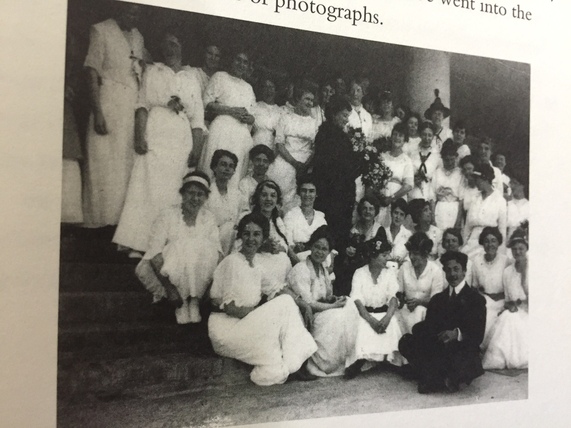
Matt Bronsil is the author of these posts. He can be contacted at MattBronsilMontessori@gmail.com. To subscribe to the email list, sign up on our contact page and you will receive an email when the list is updated.
<<< Back to the article list <<<
Recommended Books on Montessori History
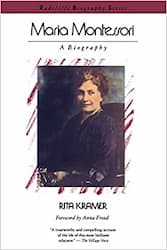
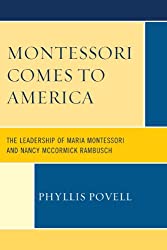
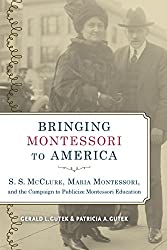
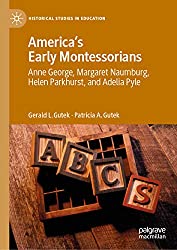
Montessori History Blogs

History of Montessori
Maria Montessori
History of Montessori in Taiwan
History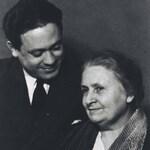
Mario Montessori
Mario Montessori
McClure's Magazine
McClure's Magazine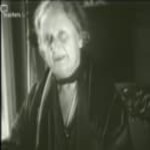
Montessori Video
Teachers TV: The Montessori Method
Read Old Magazine Articles
Old Montessori Articles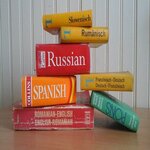
EFL and Montessori
EFL and Montessori